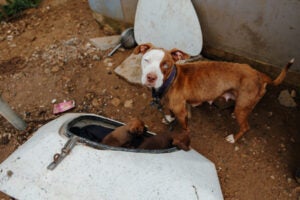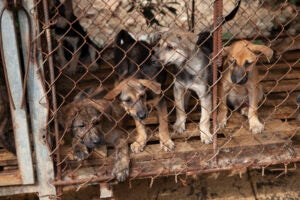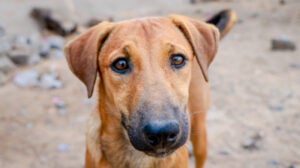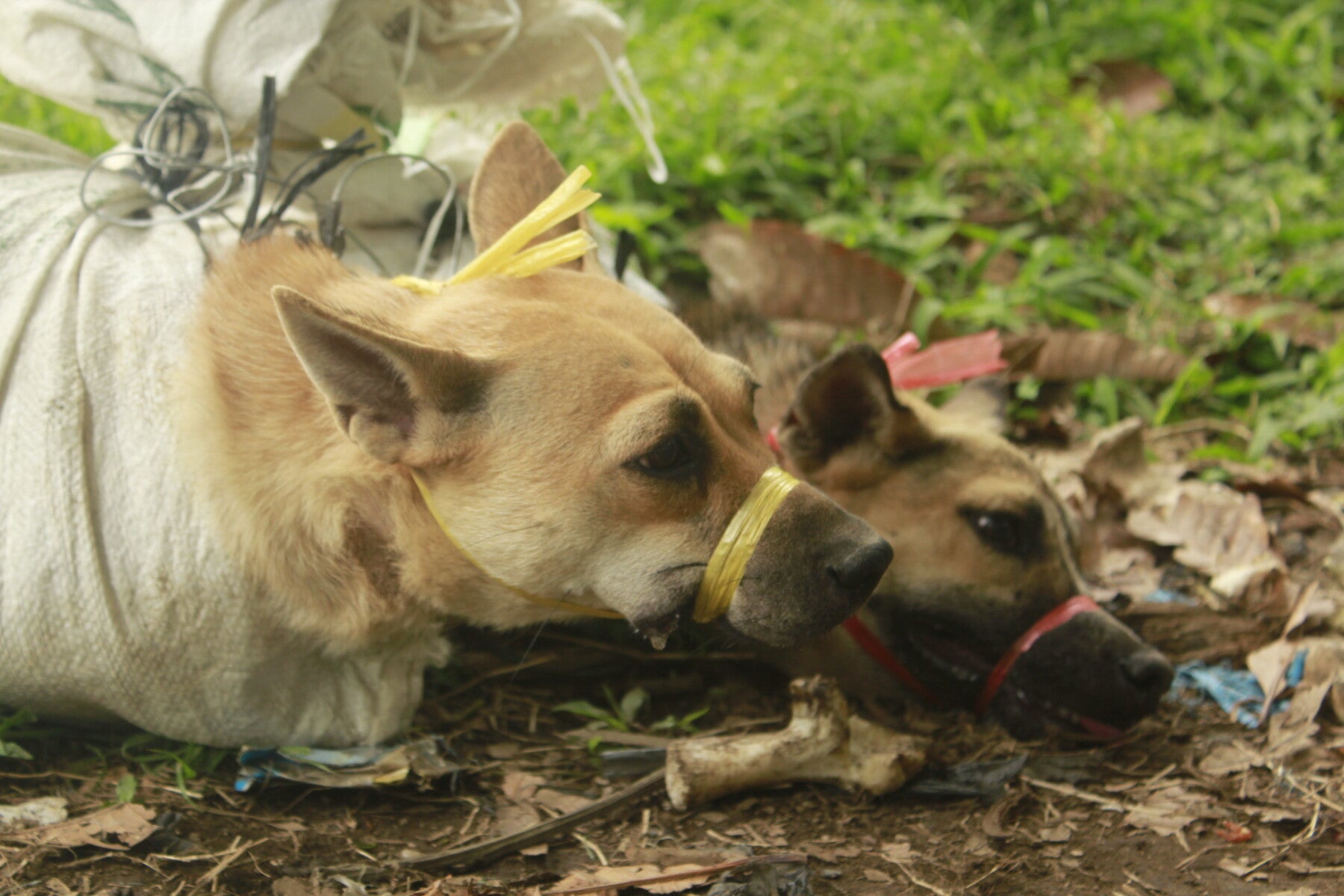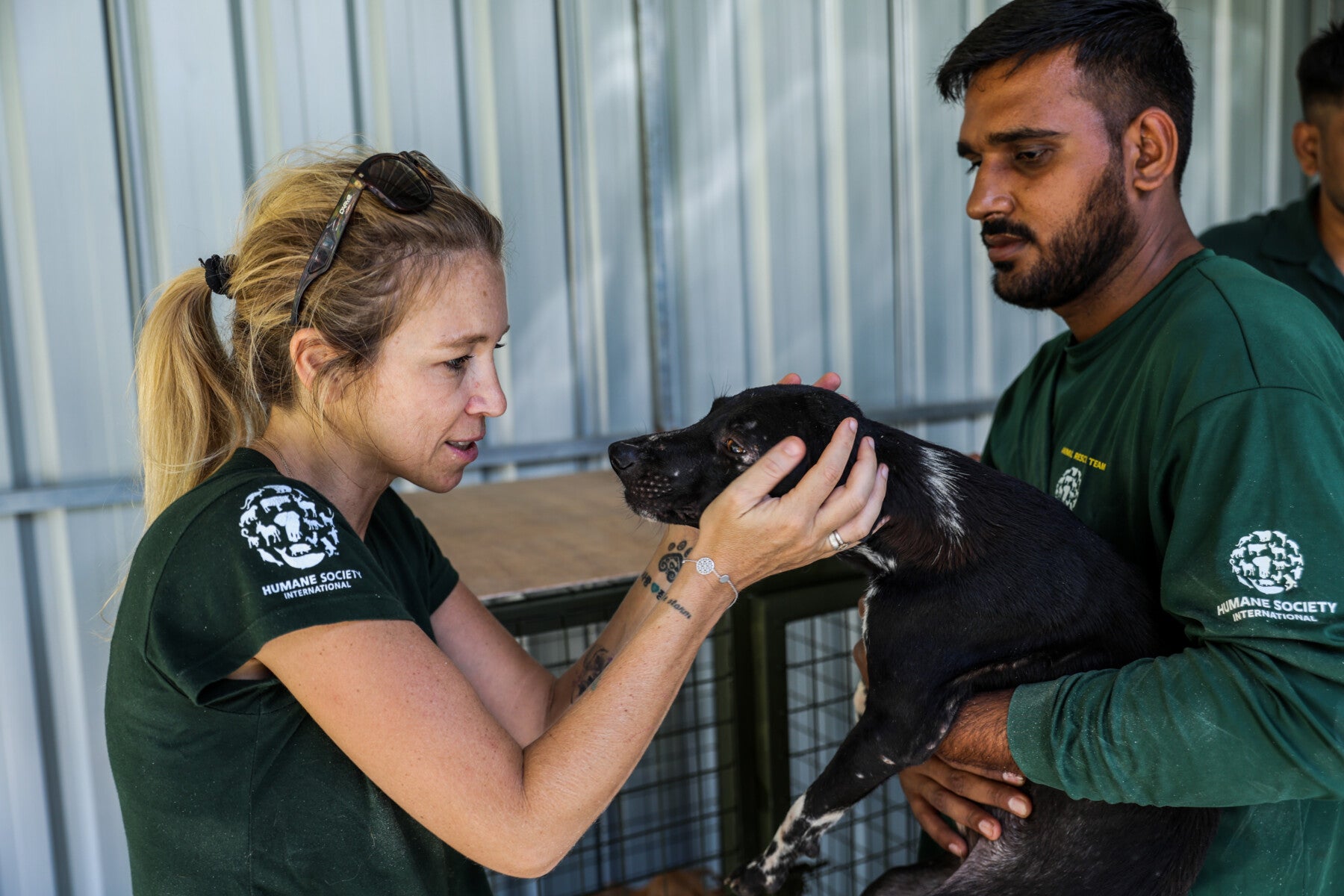
DELHI, India—With the newly formed Government assuming office this month, Humane Society International/India and People for Animals urge the Honorable Prime Minister Narendra Modi in a letter to expedite passage of the long-awaited Prevention of Cruelty to Animal (Amendment) Bill 2022 in the upcoming Monsoon session of the Parliament. The draft bill introduces amendments to the current animal law including stringent penalties for animal cruelty, newer cognizable offenses, and establishes five fundamental freedoms for every animal—freedom from hunger and thirst; freedom from discomfort; freedom from pain, injury, and disease; and freedom to express normal and natural behavior.
Despite India having some of the strongest animal laws in the world, the Prevention of Cruelty to Animals Act, 1960 has remained unchanged since its adoption, giving scope to animal offenders to go scot-free after committing serious crimes against animals. Currently, the maximum fine for even the most heinous crime against animals—including beating, poisoning, raping or burning an animal—is a mere Rs. 50 (and Rs. 100 for repeat offenders).
The pressure to update this law has been increasing since 2016, with over 400,000 signatures submitted on petitions to amend the animal welfare laws. In 2022, over 180 parliamentarians demanded such an amendment, echoed by the 50,000 emails and letters sent in 2023 by animal advocates and the general public to PM Narendra Modi to amend the 1960 Act.
Alokparna Sengupta, managing director of Humane Society International/India, said: “There is an urgent need for bringing the new act. In the long run, the lack of a better law poses a great threat to society at large. In the pursuit of compassion, justice and a more humane society, the time to act is now and we need urgent reforms from the newly elected Government that will act as a deterrent against animal cruelty and be applicable to both individuals and institutions.”
Gauri Maulekhi, trustee of People for Animals, said: “Amending the PCA Act is imperative and long overdue. It is wellknown that violence against animals is a precursor to violence against other vulnerable members of our society, be it women, children or our elders. Strengthening this law protects animals and serves as a pivotal step towards cultivating empathy and respect, fostering a society where compassion thrives, and brutality finds no haven.”
Some recent cruelty cases of a highly disturbing nature include that of Jai, the community dog in Mumbai being brutally killed ; a pet golden retriever in Gurgaon thrashed in an elevator by a dog walker; and a street dog being beaten brutally in Jagatpuri, Delhi. The passage of this law is expected to set a strong precedent by raising fines and punishment for cruelty offenses against animals and helping to build a society that treats domesticated and wild animals with care and compassion.
Urge the new government to keep up with the times and adopt better laws against animal cruelty by signing the petition.
Facts:
- Apart from the meager penalties, many offenses against animals under the current laws are bailable and non-cognizable, which means accused individuals can seek bail easily and prevent immediate police action without court permission.
- The main objective of the Prevention of Cruelty to Animals Act is to prevent unnecessary pain or suffering on animals, to adopt guidelines regarding experimentation on animals for scientific purposes and to empower a committee to make rules with regards to such experiments, and to restrict the exhibition and training of performing animals.
- #NoMore50 campaign was started by HSI/India and PFA after Shaktiman, a white horse, was beaten brutally by n member of the Legislative Assembly in 2016. #NoMore50 is a call to demand social justice and amend the Prevention of Cruelty to Animals Act, 1960, by increasing the penalty from a mere Rs. 50. Since 2016, the campaign has received enormous support from people from all walks of life including eminent judges, celebrities and members of the Legislative Assembly.
- Several MPs in the past including Hema Malini, Pankal Chaudhry, Arjun Lal Meena, Dr. K. Laxman, Margani Bharat Ram, Dr. Mohammed Jawed and Raja Amreshwara Naik had written to the Prime Minister requesting that the proposed Amendment Bill be brought up for discussion.




